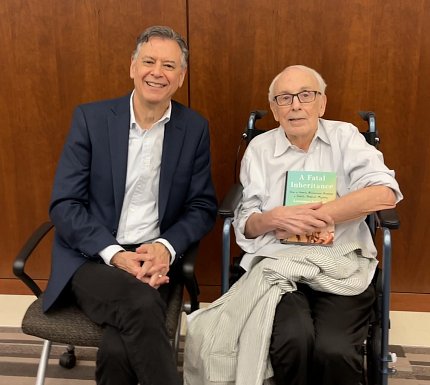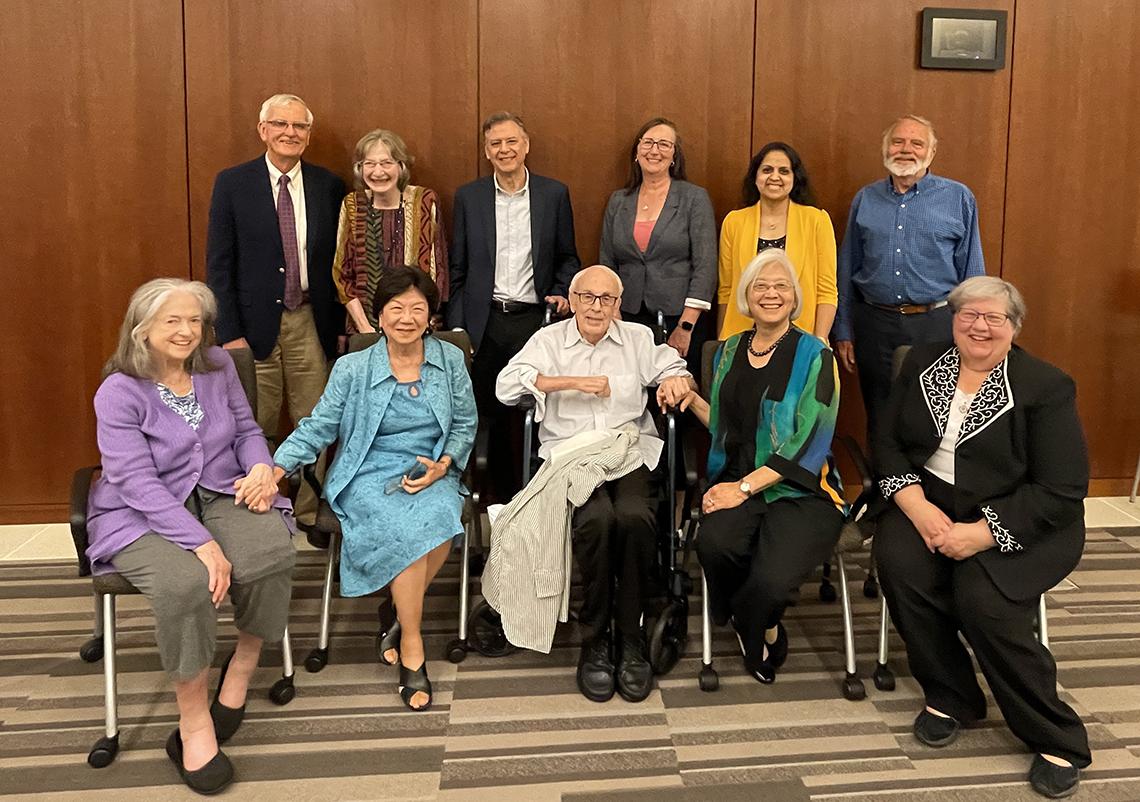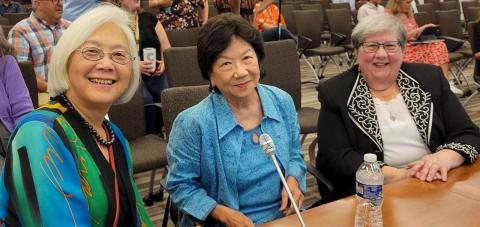‘A Fatal Inheritance’ Author Discusses New Book

Photo: NCI
Journalist Lawrence Ingrassia recently spoke at the National Cancer Institute (NCI) about his new book, which evolved from interviews with current and former researchers at NCI and several other institutions.
In 2019, Ingrassia, a former editor and reporter for the Wall Street Journal, New York Times, and Los Angeles Times contacted NCI to request interviews for a possible magazine article about Li-Fraumeni Syndrome (LFS), the syndrome which resulted in the deaths of his mother, three siblings and nephew. In March 2020, he came to the NCI to meet with Dr. Joseph Fraumeni, Jr.—founding director of NCI’s Division of Cancer Epidemiology and Genetics (DCEG) and scientist emeritus—and DCEG staff.
The result of those initial and many subsequent discussions is the newly published memoir and medical mystery, A Fatal Inheritance: How a Family Misfortune Revealed a Medical Mystery.
LFS is an inherited disorder caused by deleterious variants in the TP53 tumor-suppressor gene with very elevated risk of several types of cancers. Investigators in DCEG have followed families with LFS since the syndrome was first described in 1969 by two epidemiologists in the intramural research program, the late Dr. Frederick Li and his collaborator, Fraumeni. Their seminal discovery was the foundation on which studies of genetic susceptibility to cancer were built.

Photo: NCI
Today, more than 230 families participate in the LFS clinical study that quantifies cancer risks and assesses psychological and social challenges faced by families with LFS. A subset of study participants come to the NIH Clinical Center for annual MRI-based cancer screening and to meet with clinician-scientists in the Clinical Genetics Branch (CGB).

Photo: NCI
Ingrassia came to NCI to discuss his family’s story to a rapt audience in the Joseph F. Fraumeni, Jr. Conference Room, including some of the leading current and former scientists engaged in the study of LFS.
Ingrassia, at several moments overcome by emotion, described the evolution of his understanding of LFS and the project. His three siblings inherited the genetic variant associated with LFS from their mother, who died in her early 30s.
Only after his brother Paul was diagnosed with a second cancer in 2015, once the family learned about LFS, did Ingrassia himself get tested. His displayed the Myriad MyRisk test result on the big screen: “negative, mutation not detected.” His family’s story alone would not make a book, he said. Only with the stories of the researchers and other families could this idea expand into a book.

Photo: NCI
In partnership with investigators and staff at the NCI, Harvard and other institutions, he was able to track down “Family A” from the original 1969 paper in Annals of Internal Medicine. Members of the Kilius Family were still participating in the NCI LFS Study and, through the clinical nurse, agreed to be contacted.
The resulting tale is gripping and propels the book forward as it unfolds across multiple generations of the two families, the lives of the researchers and the scientific advances in cancer genetics resulting in the identification of TP53 and the development of clinical management protocols families with LFS.
The event was spearheaded by Dr. Sharon Savage, DCEG clinical director and CGB branch director, and Lasker Clinical Research Scholar Dr. Payal Khincha, who is principal investigator of the NCI LFS study.
“It was a truly inspiring day of science and reminiscing that showcased how rare disease studies lead to insights applicable to the general population,” said Savage. Khincha added, “Events like these provide a critical reminder of the interconnectedness of physician-scientists and the valuable contributions of study participants.”
